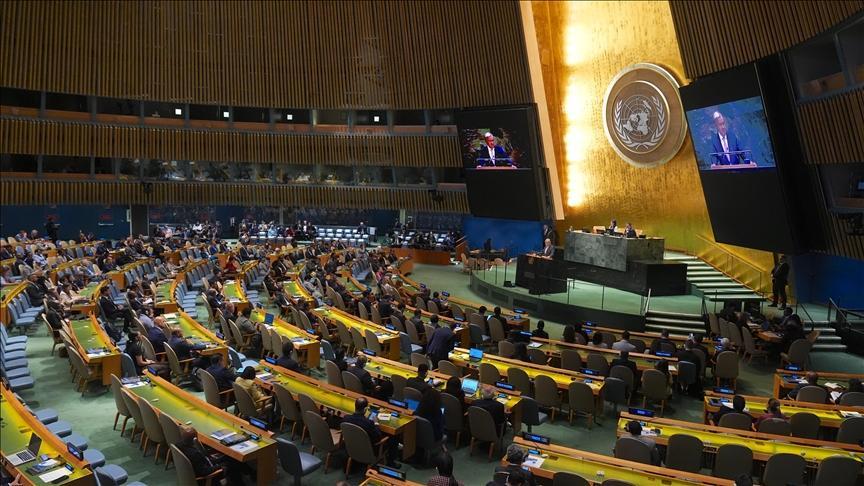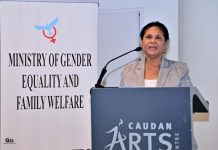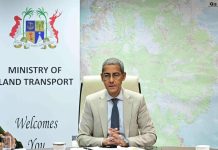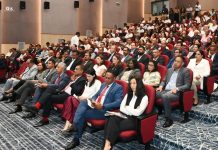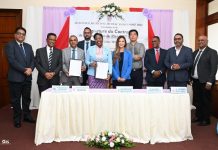Africa-Press – Mauritius. World leaders will convene in New York this week for the 80th session of the UN General Assembly, an historic anniversary of the organization overshadowed by profound global divisions, raging conflicts, and a roster of attendees that highlights the world’s fractured state.
The high-level week, which kicks off on Monday, will see heads of state and government navigate a packed agenda of summits on climate, development and artificial intelligence, all culminating in the marquee General Debate, where they address the world from Sept. 23-29.
Annalena Baerbock, Germany’s former foreign minister, who was elected president of the 80th session, has framed the gathering’s mission as a call to action.
“To preserve what the UN has achieved since 1945. To renew OUR United Nations. To make us, the UN, fit for the future, fit for purpose,” Baerbock said about the meeting. “This is the task of our time. Better Together!”
The session’s theme is: “Better together: 80 years and more for peace, development and human rights,” a motto that stands in stark contrast to the current geopolitical landscape.
– Historic, divided roster
The list of who is and is not attending speaks volumes about the current international climate.
In one of the most significant developments, Syrian President Ahmed al-Sharaa is traveling to New York to address the assembly, marking the first time a Syrian head of state has done so since 1967. His presence signals a dramatic shift in the country’s international standing after the fall of the Ba’ath Party regime last December.
Leaders from the world’s most volatile conflict zones are also confirmed to attend. Ukrainian President Volodymyr Zelenskyy will be in New York for the debate and a series of bilateral meetings. Israeli Prime Minister Benjamin Netanyahu is also scheduled to speak amid his country’s ongoing genocidal war in Gaza and growing international recognition of a Palestinian state by Western countries.
Iranian President Masoud Pezeshkian will attend, just as Tehran announced that it would suspend cooperation with the International Atomic Energy Agency (IAEA) following a UN Security Council vote on sanctions. The Emir of Qatar, Sheikh Tamim bin Hamad Al-Thani, will also be present following an Israeli attack on his nation’s capital.
However, several major powers are sending lower-level delegations. Russian President Vladimir Putin will skip the event for another year, with Foreign Minister Sergey Lavrov leading Moscow’s delegation. China will be represented by Premier Li Qiang, not President Xi Jinping. Similarly, Indian Prime Minister Narendra Modi will not attend, tasking External Affairs Minister S. Jaishankar to speak for the country.
The diplomatic complexities are further underscored by the situation of Palestinian President Mahmoud Abbas, who was denied a US visa. Following a 145-5 vote by the General Assembly, he will be permitted to address the body by video.
Meanwhile, Afghanistan’s seat remains held by the envoy from its pre-2021 government, meaning the Taliban will have no official presence, as it remains unrecognized by the vast majority of the world.
As the host country, the US’ bilateral relations are also a determining factor in the level of participation at the meeting. Venezuela, whose relations with Washington are strained, will be represented by Foreign Minister Yvan Gil. Meanwhile, North Korea, as usual, is sending a mid-level representative to the meeting.
– General Debate: Platform for grievances
The General Debate, held in the vast General Assembly Hall, remains the centerpiece of the week.
It provides a unique platform for leaders to air grievances, defend their policies, and shape the international narrative.
Discussions are expected to be dominated by Israel’s genocidal war on Gaza and the Russia-Ukraine war.
The paralysis in the Security Council over these conflicts will fuel renewed, impassioned calls for reforming the UN’s most powerful body to better reflect contemporary global realities.
– Beyond the podium: Week of summits
While the General Debate captures headlines, much of the week’s substantive work occurs in a whirlwind of high-level meetings. The week will formally commence on Monday with a high-level meeting to commemorate the 80th anniversary of the United Nations.
This will be followed by the annual “SDG Moment,” an event designed to galvanize action to achieve the Sustainable Development Goals by their 2030 deadline. The meeting is seen as a critical juncture to reignite global commitment.
The UN Global Compact Leaders Summit will bring together business leaders, UN officials, government leaders, SDG stakeholders and civil society representatives on Tuesday to review the private sector’s contribution to the progress of the SDGs.
A major Climate Summit on Wednesday will focus on demonstrating a commitment to protecting people and the planet as well as accelerating action in line with the goals of the Paris Agreement.
Anniversaries will feature prominently, with a high-level event marking 30 years since the landmark Beijing Declaration on women’s rights to assess progress on gender equality. Similarly, another conference will commemorate the 30th anniversary of the World Program of Action for Youth, aiming to strengthen intergenerational collaboration.
Looking toward the future, leaders will launch a Global Dialogue on Artificial Intelligence Governance, bringing stakeholders together to explore frameworks for this transformative technology.
Pressing issues of global security and well-being are also on the schedule. The annual high-level meeting to promote the total elimination of nuclear weapons will address what the UN considers its highest disarmament priority. In parallel, a dedicated summit will tackle the prevention of noncommunicable diseases and the promotion of mental health.
The 80th session of the General Assembly officially opened on Sept. 9 and will run through Sept. 8, 2026. However, for one intense week in September, the world’s attention will be fixed on New York to see if an organization born from global war can find a way to foster cooperation in a world teetering on the edge of multiple crises.
Source: Anadolu Ajansı
For More News And Analysis About Mauritius Follow Africa-Press


